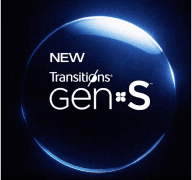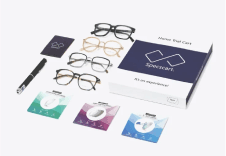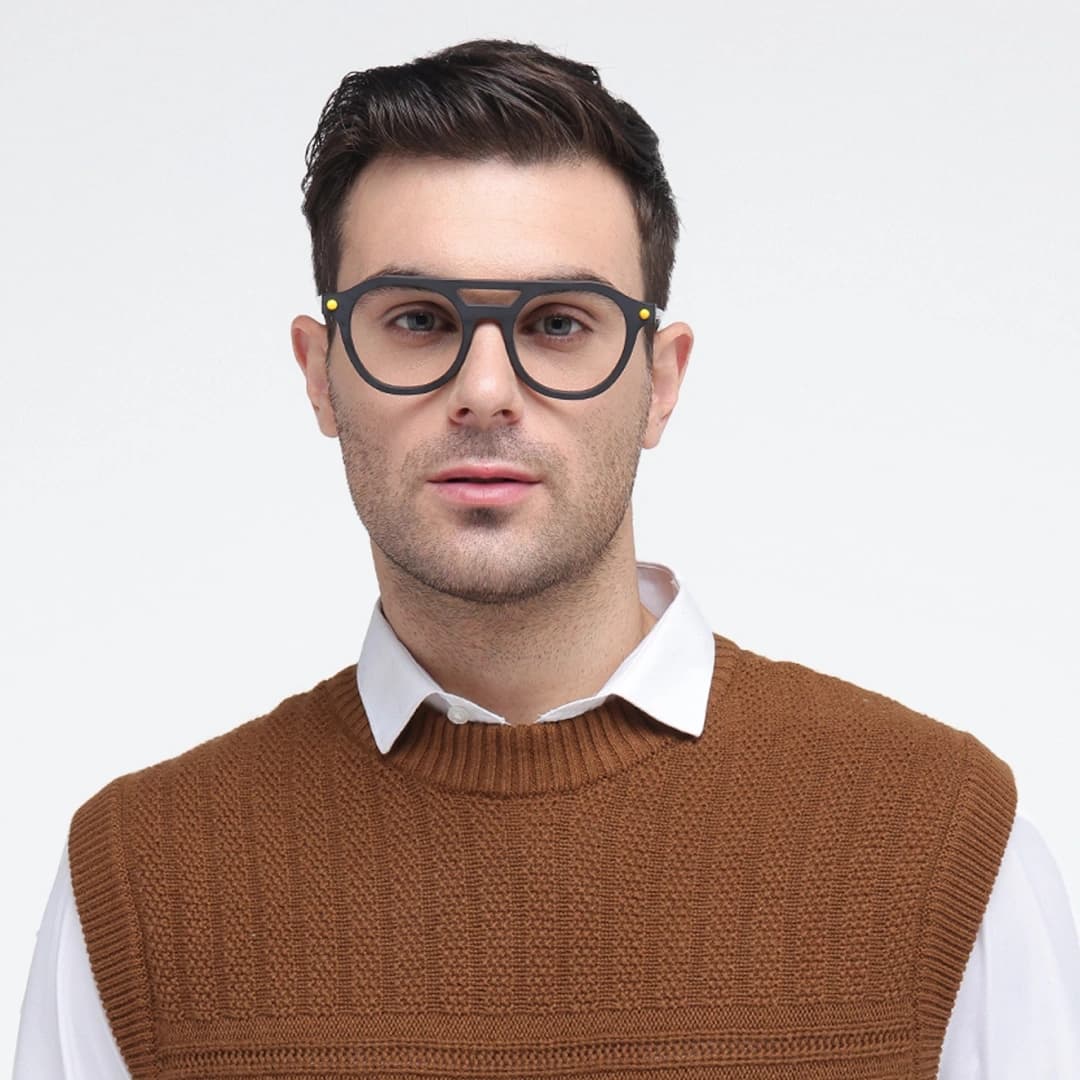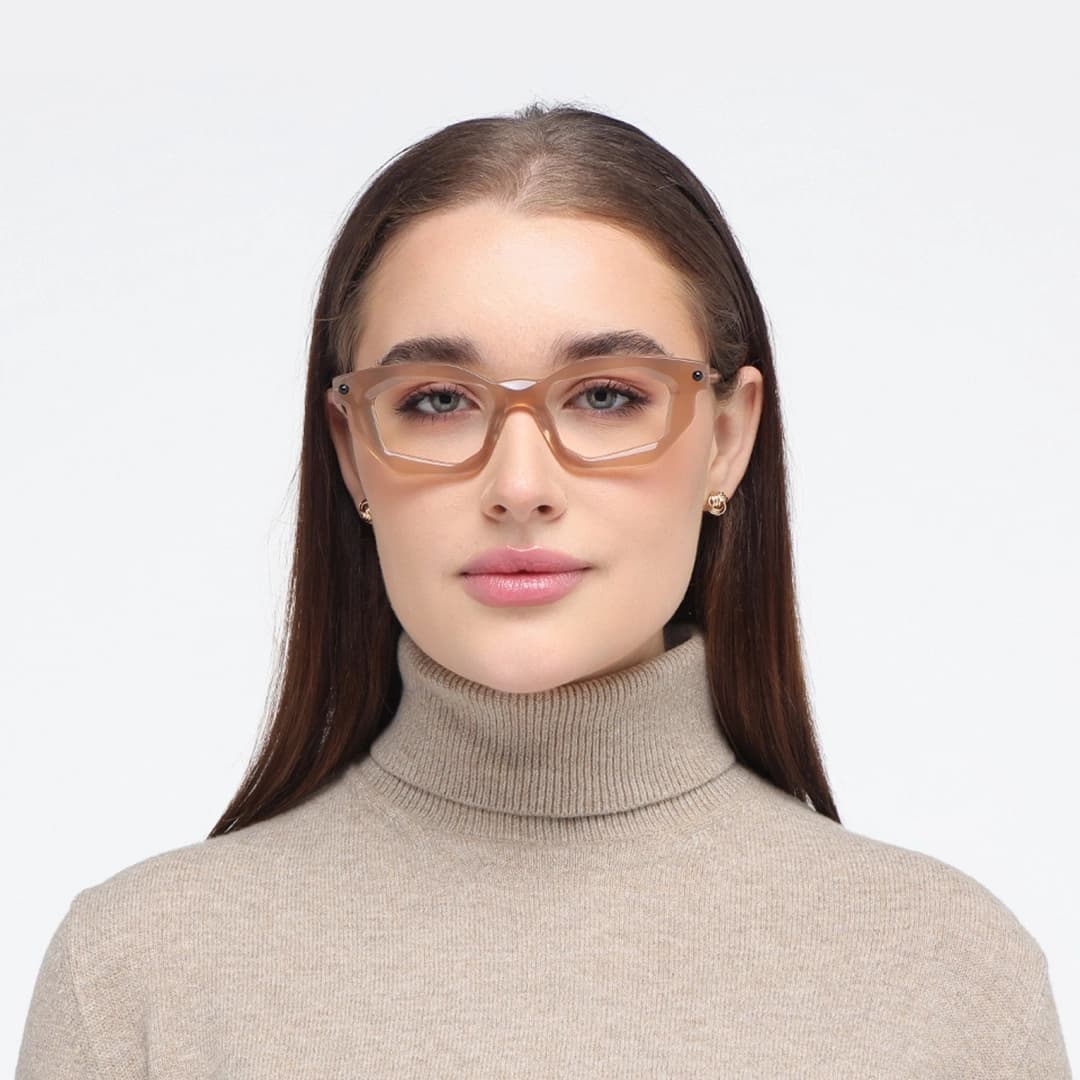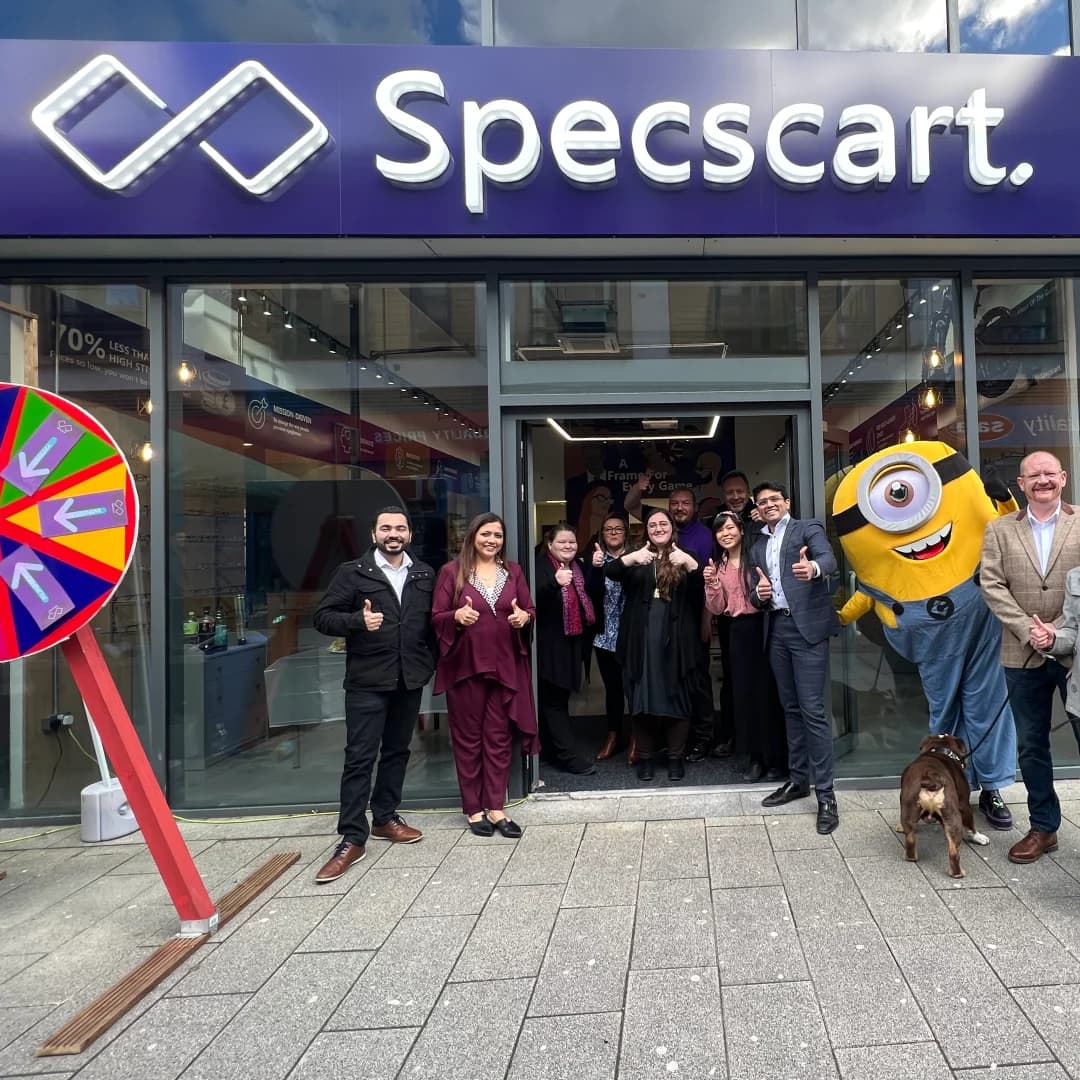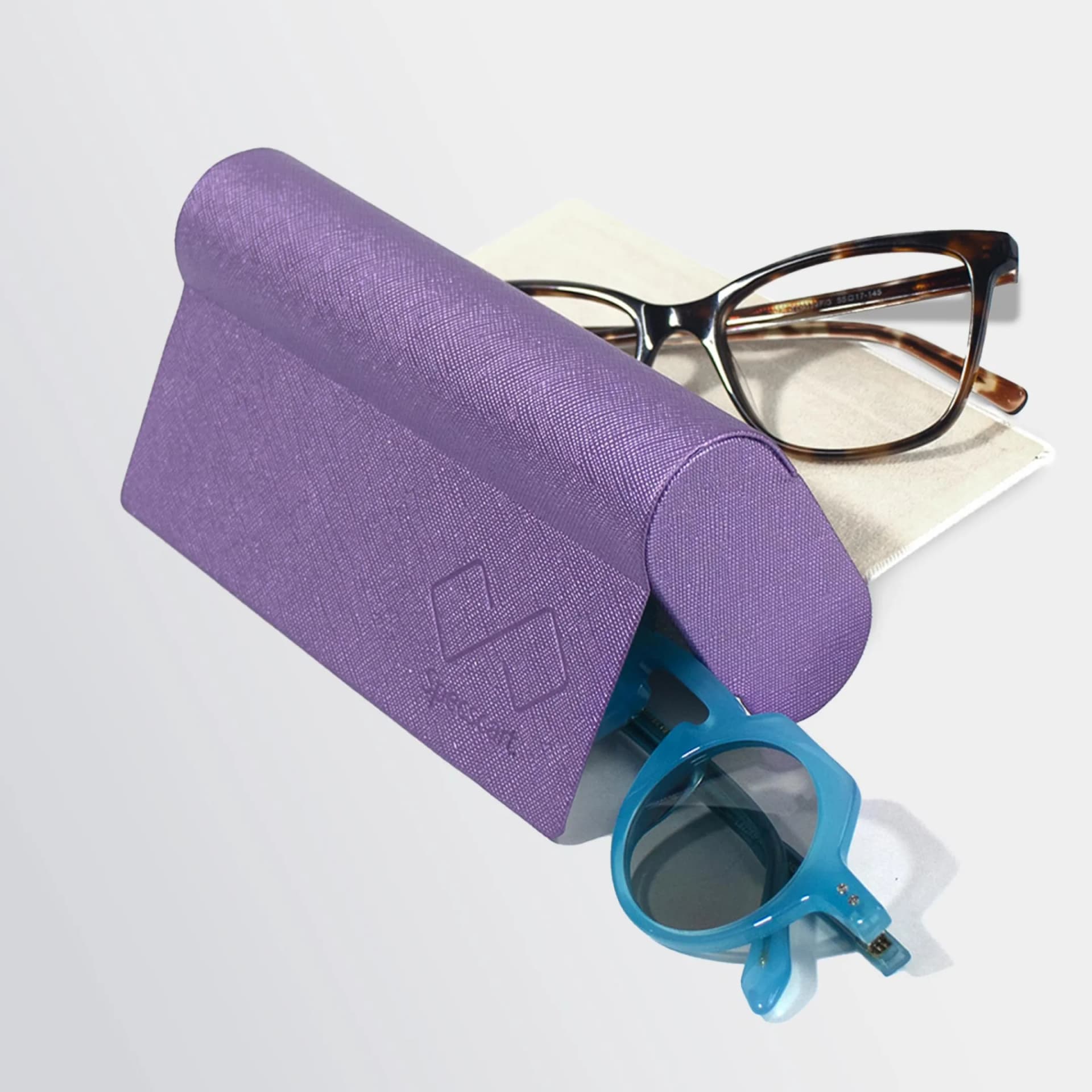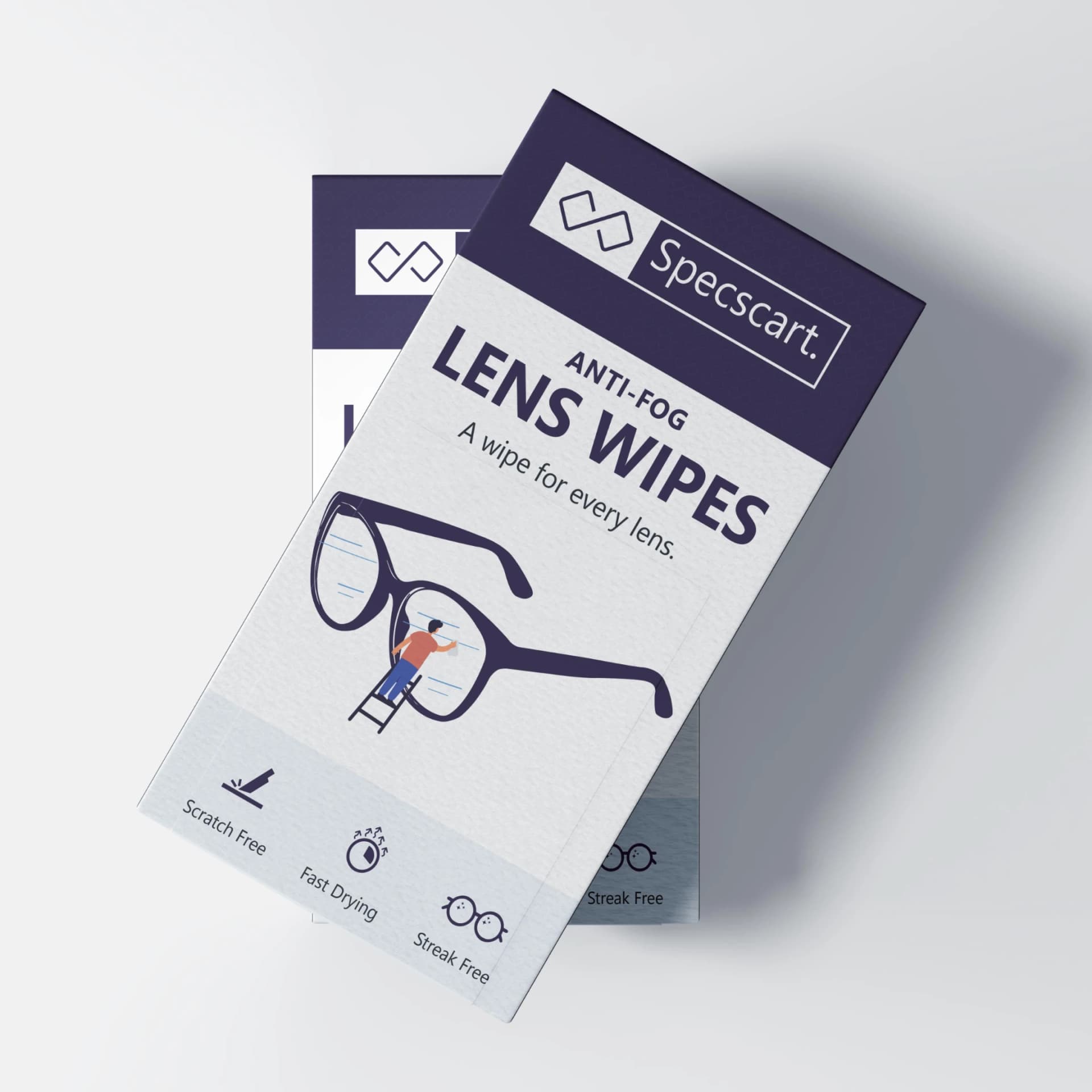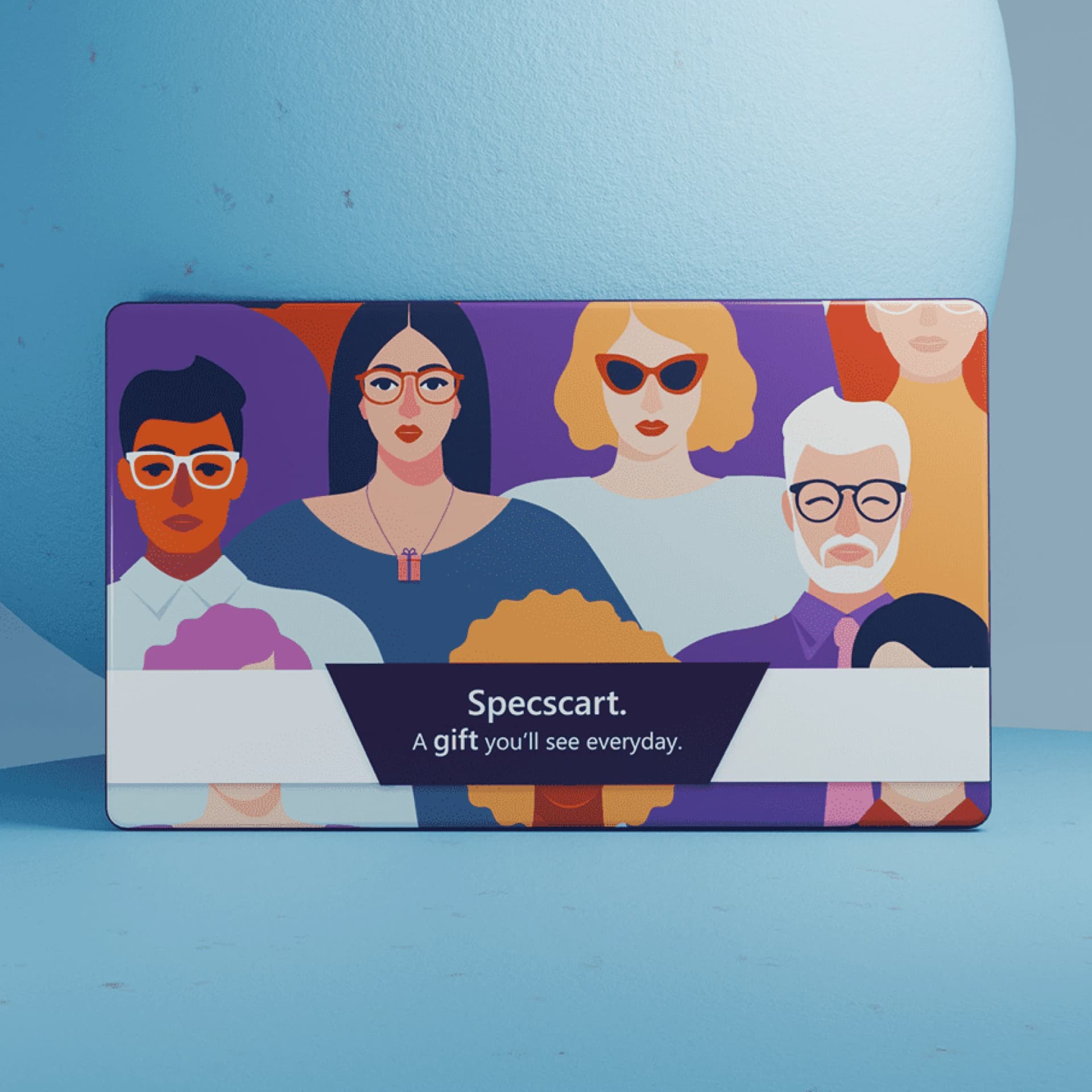Three Ways Blue Light Causes Poor Vision - What to Know

Content Manager
It is rightfully said that eyes are the windows to the soul. But, in today’s day and age, when the average screen time in the UK is around 4 hours, these ‘windows’ are increasingly getting hazy. From scrolling through social media to working in the office and binge-watching favourite shows, almost three-quarters of our daily activities happen in front of blue-light emitting electronics, such as laptops, phones, tablets, etc.
Excessive absorption of blue light is alleged to cause various problems like blurry vision, eyestrain, macular degeneration, and more. But, are these claims the work of the rumour mill or does blue light actually lead to poor vision? Let us find out what the experts say
What is Blue Light?
There are electromagnetic waves all around us. These waves differ in length, with radio waves being the longest and gamma rays being the shortest. Although most electromagnetic waves are invisible to the naked eye, a small band that we know as visible light can be detected by the human eye.
The longer the wave, the less energy it transmits. Blue light has very short, high energy waves, which can be as powerful as the harmful UV ways that health experts have always warned us against. The common electronic devices we use, such as laptops, tablets, phones, high-energy lighting, etc., are increasing our exposure to blue wavelengths, especially after sunset.
Is Blue Light An All-evil Phenomenon?
Firstly, let us clear the misconception that blue light is an all-evil phenomenon. Blue light is, in fact, necessary for certain elements of our everyday life. It helps boost alertness, memory and cognitive functions, and improves the mood. Besides, exposure to an adequate amount of blue light during the day hours also regulates the circadian rhythm (the body’s natural sleep cycle).
However, the keywords here are ‘adequate’ and ‘moderation.’ Excessive exposure to blue light-emitting devices for prolonged periods during the day or night might be harmful to health. For example, health experts are extremely wary of situations wherein people are exposed to too much blue light at night via smartphones, laptops, and other electronic devices. The human eye is equipped with structures that safeguard it against harmful light. However, they cannot keep out blue light and many medical experts have expressed concern regarding excessive exposure to blue-light emitting devices at nightfall.
The Three Ways by Which Blue Light Causes Poor Vision
Some of the ways by which blue light detrimentally affects vision and our overall health are -
1. Hampers the Sleep Cycle
A good night’s sleep is a necessity to remain healthy and well. A stable circadian rhythm informs the human body that it is time to stay awake or sleep. The human body has become so acquainted with the daytime environment that most of our energy reserves are utilised to perform tasks when the sun is out.
Similarly, our body also produces certain hormones that become more active at night. But, as technology advances and our screen time skyrockets (especially after the pandemic), the prolonged exposure to blue-light has increased beyond a health limit. Thus, when our eyes and body are exposed to blue light at night, our brain might continue to believe that it is on the alternate side of the circadian rhythm, making it hard for us to sleep at night.
According to a 2019 study, when blue-light emitted from digital devices disrupt the sleep cycle, it can culminate in other problems, such as -
- Lower levels of leptin, which is a chemical that indicates the body of fullness after meals
- Erratic metabolic changes, especially blood sugar
- An increased susceptibility to hormone-related cancers, such as breast and prostate cancer
- Solution: To prevent excessive exposure from blue light-emitting devices hampering your sleep cycle and leading to more serious problems, it is best to avoid digital devices for two to three hours before your bedtime.
2. Eyestrain
Various studies also show that using blue-light emitting devices for prolonged times can lead to digital eye strain. The continuous use of computers, laptops, and other similar devices forces people to blink less than usual. As we know, fewer blinks equate to less moisture, resulting in digital eye strain. Digital eye strain is a subjective phenomenon, meaning different things for different people. However, its typical repercussions include -
- Dry eyes
- Sore or irritated eyes
- Headaches
- Facial muscles getting tired because of squinting and more
3. Excessive Blue Light Exposure Might Damage the Retina
Few studies also show that when excessive blue light enters the retina, it might destroy photoreceptor cells. Thus, when the molecules that signal the entry of light into the membrane are dissolved, a person’s vision could be significantly impaired. Although the destruction is progressive, it could get severe with time. Besides, the most worrisome aspect is that once photoreceptor cells disintegrate, they cannot regenerate anymore. Thus, it is imperative to be extra careful if your daily routine includes excessive exposure to blue light.
Now that we know the three ways blue leads to poor vision, let us look at some easy ways to deal with the problem.
Three Easy Steps to Limit Blue Light Exposure
- Use High-quality Blue Light Blocking Glasses - Our innovatively engineered advanced blue light blocking glasses prevent most of the blue light passing through and reaching your eyes. Unlike traditional anti-blue light glasses that have simple coatings, the blue-light blocking glasses made by Specscart have X-blue technology infused within the monomer of the lenses for comprehensive and maximum protection.
- Follow the 20-20-20 Strategy - According to experts, when you are using a device that emits blue light, like a tablet or laptop, it is ideal to stop and look away from the screen every 20 minutes and focus on objects that are around 20 feet away. Then, it is advisable to study those objects for 20 seconds before returning to the upclose screen view.
- Keep the Eyes Moist - Thirdly, a tried-and-tested way to deal with the eye problems induced by excessive blue light exposure is keeping your eyes moist. Eye drops, such as artificial tears, and installing humidifiers in the room are excellent ways to keep your eyes hydrated and moist and prevent them from getting too dry.
Caption: Using eye drops and keeping the eyes moist might keep eye strain at bay
Final Thoughts
So, there we have it, a crisp overview of the three ways by which blue light leads to poor vision and how you can overcome the problems. At Specscart, we aim to revolutionise eyewear by making it a digital protection equipment. As the global population is compelled to remain glued to the screen, our ‘vision’ is to ensure that excessive screen time does not culminate in rampant vision loss and related problems. Therefore, our advanced and high-tech blue light glasses are designed to be the change.
References
https://www.uswitch.com/mobiles/screentime-report/
https://www.healthline.com/health/what-is-blue-light
https://www.webmd.com/eye-health/blue-light-health
https://www.ncbi.nlm.nih.gov/pmc/articles/PMC6751071/
https://www.ncbi.nlm.nih.gov/pmc/articles/PMC6071739/
https://pubmed.ncbi.nlm.nih.gov/30663136/
Caution: You may become style obsessed
Your way finder
2000+ Trendy Styles

Fashion Forward Sunnies



















